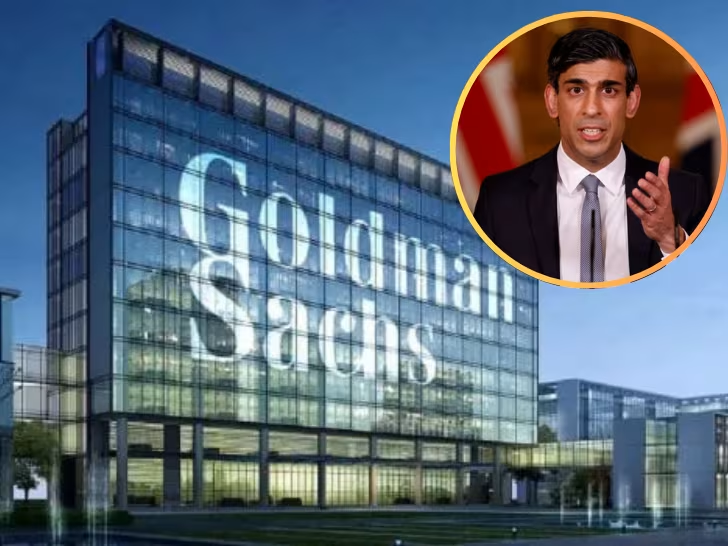Physical Address
Kurukshetra, Haryana (India)
For Any Query: Contact Us
Learn More About GyanFry
What do world leaders do after stepping out of power? Some write memoirs, others retire quietly. But Rishi Sunak, former Prime Minister of the United Kingdom, has taken a route that bridges government and global finance. His new role at Goldman Sachs, one of the most powerful investment banks in the world, is more than just a career shift—it’s a sign of the changing relationship between politics and money.
The story begins with a return. This is not Sunak’s first time at Goldman Sachs. Back in the early 2000s, the former PM started his career there as an analyst. After years in politics—most notably steering the UK through the pandemic, a cost-of-living crisis, and volatile global markets—he is rejoining the firm. But this time, not as an employee managing spreadsheets, but as a senior adviser offering perspective shaped by leading a G7 economy.

In this part-time role, Sunak will provide strategic insights to senior teams and clients. According to a report by Reuters, his focus will be on geopolitical issues, macroeconomic conditions, and risk analysis—areas where the intersection of global politics and finance has become especially sharp. His voice will help the firm and its clients make sense of uncertainty, from shifting alliances to central bank policies.
Though still an active Member of Parliament, Sunak’s move to the private sector follows strict ethical rules. The UK’s Advisory Committee on Business Appointments (Acoba) has cleared the position, as required for any minister who held high office. The guidelines ensure that no privileged government knowledge is misused, and that the former Prime Minister keeps a clear boundary between public service and private gain.
As part of the agreement, the advisory role comes with clear limitations. The former UK leader cannot lobby government officials, engage with financial institutions he dealt with in office, or work in areas that overlap directly with his ministerial responsibilities. These steps are meant to protect public trust and prevent any conflict of interest.

Financial compensation is part of most private sector roles, but Sunak has taken a different approach. All earnings from Goldman Sachs will be donated to The Richmond Project, a charity he personally founded. As reported by The Guardian, the initiative supports schoolchildren in the UK by improving numeracy skills—a cause close to his background in finance and education policy.
This kind of career move is not unique. Former Chancellor George Osborne took a senior position at BlackRock, another global financial powerhouse. The trend shows how financial firms are turning to those with deep government experience to better understand the world beyond markets—political instability, trade tensions, and regulation.
From Goldman Sachs’ perspective, bringing in a former Prime Minister is not about prestige. It’s about gaining access to someone who understands how policy decisions are made, how governments think, and how economic strategy is shaped behind closed doors. In today’s climate of economic unpredictability, such insight is incredibly valuable.
For Sunak, this role provides an opportunity to stay active in global problem-solving, even outside political office. The former Prime Minister now acts as a kind of bridge—connecting the worlds of public policy and private capital, while maintaining transparency through charitable giving and ethical guidelines.
This move tells us something larger: in today’s world, the line between politics and finance is growing thinner. Those who understand both sides are increasingly in demand—not just for what they know, but for how they think. And as global challenges become more complex, this kind of experience may become not just useful, but essential.